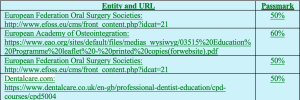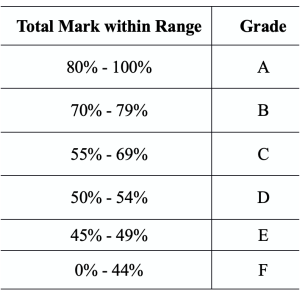UNIT TITLE |
Award in Basic Surgical Sciences for Implantology |
|||||||||||
EQF/MQF |
7 | |||||||||||
ECTS |
6 | |||||||||||
UNIT DESCRIPTION |
This award is intended as Continous Professional Development (CPD) related to implantology for qualified and practicing general dental practitioners. | |||||||||||
LEARNING OUTCOME |
|
|||||||||||
CORE READING LIST |
Contemporary Implant Dentistry (Misch)
Currently in its third edition (2008) This is a foundational reference text in the sector, and still very much in use. The 4th edition is planned for 2019, at which point the reading list will be updated: https://www.elsevier.com/books/contemporary-implant-dentistry/misch/978-0-323-39155-9 Dental Implant prosthetics (Misch) (2014) https://www.elsevier.com/books/dental-implant-prosthetics/misch/978-0-323-07845-0 Clinical Periodontology and implant dentistry (Lindhe) (2008) This is a foundational reference text in the sector, and still very much in use. It has been selected pending planned publication of updated edition, at which point the reading list will be updated. http://eu.wiley.com/WileyCDA/WileyTitle/productCd-111835561X,subjectCd-DN60.html Plastic-Esthetic Periodontal and Implant Surgery: A Microsurgical Approach (Zuhr) (2012) http://www.quintpub.com/display_detail.php3?psku=B9069#.WRCGdVJaZmA |
|||||||||||
STUDY UNIT TYPE |
Interactive lectures, workshops | |||||||||||
GENERAL ASSESSMENT PROCEDURES |
This Award shall be assessed in two components:
a) 120-minute paper-and-pencil questionnaire carried out in Malta, having 60% of the final grade b) 15-minute one-on-one oral examination having 40% of the final grade The questionnaire shall be a 100-item multiple-choice questionnaire with four alternative answers per item, assessing knowledge, comprehension, application, analysis, and evaluation. The pass-mark for each assessment component is 60%. This passmark has been decided upon undertaking a review of relevant best practice in the field, a summary of which is provided in the table below:
|
Back



